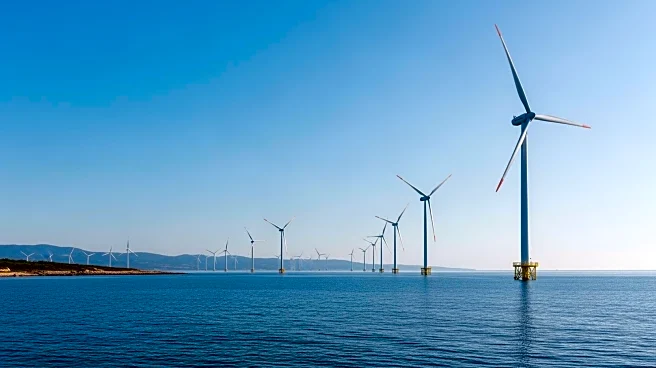What's Happening?
Canada has launched its first prequalification round for offshore wind farm bidding, marking a significant step in developing its offshore wind energy industry. The Canada-Nova Scotia Offshore Energy Regulator
(CNSOER) is overseeing the process, which includes a Call for Information from communities and partners. The initiative targets the development of 3000 MW of offshore wind energy, with ambitions to reach 5000 MW. The prequalification process aims to identify companies with the financial and technical capabilities to undertake the project. Feedback is being solicited from indigenous groups, the fishing sector, industry, government, and other stakeholders.
Why It's Important?
This development represents a pivotal moment for Canada's renewable energy sector, particularly in Nova Scotia. The move towards offshore wind energy aligns with global efforts to transition to cleaner energy sources and reduce carbon emissions. The project has the potential to create jobs, stimulate economic growth, and enhance energy security. By setting ambitious targets for offshore wind capacity, Canada is positioning itself as a leader in renewable energy innovation. The involvement of diverse stakeholders in the prequalification process underscores the importance of inclusive and sustainable energy development.
What's Next?
Following the prequalification phase, eligible companies will be invited to bid for licenses to develop offshore wind farms. The CNSOER will continue to gather feedback and refine the evaluation criteria for the bidding process. The timeline for the Call for Bids has not been set, but submissions for the prequalification are due by January 13, 2026. The success of this initiative could lead to further expansion of offshore wind projects in Canada, contributing to the country's renewable energy goals.
Beyond the Headlines
The development of offshore wind farms in Canada raises important considerations regarding environmental impact and the rights of indigenous communities. Ensuring that the projects are environmentally sustainable and respectful of indigenous rights will be crucial. The initiative also highlights the need for collaboration between government, industry, and local communities to achieve shared energy goals.










